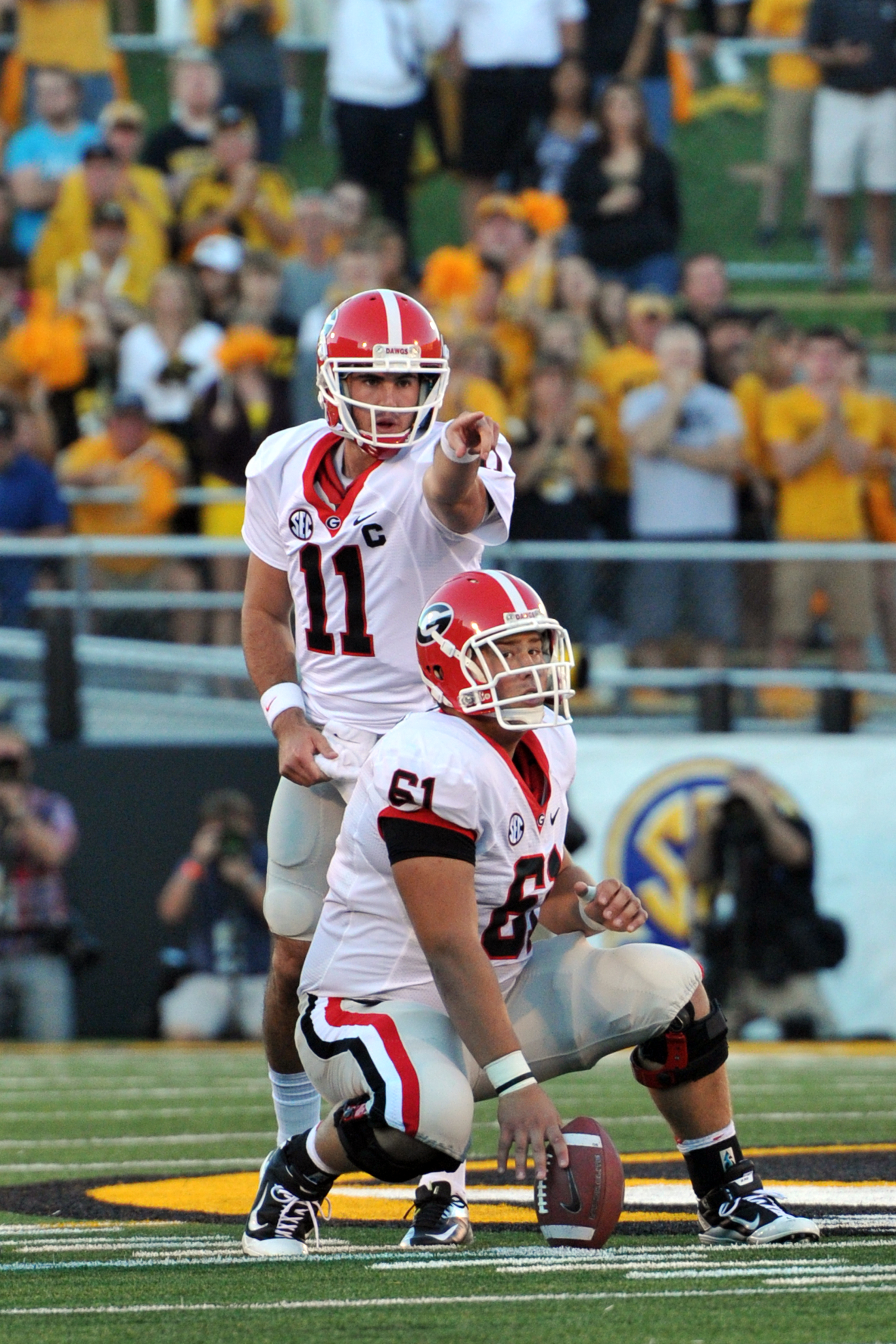Richt fine with spike-limit rule
Sunday, August 4, 2013
ATHENS, Ga. — Imagine a 2013 Southeastern Conference football championship game between Alabama and Georgia that is as riveting as their matchup last December.
Picture the rallying Bulldogs absent of timeouts and trailing by two points, and quarterback Aaron Murray throws a pass from midfield that Malcolm Mitchell snags at the 20-yard line before being tackled in the middle of the field. Only two seconds remain, so the obvious choice would be to spike the ball and send in the field-goal team, right?
Not anymore.
Under a new NCAA rule, at least three seconds must remain in a half to perform a successful spike.
“If the clock reads two seconds or one second, then there is time for only one play,” SEC coordinator of officials Steve Shaw said at the league’s media days, “so most likely you wouldn’t want that one play to be spiking the ball. This will make it more consistent. The quarterback will know that if he looks up and sees two seconds left, he’s got to run his play.”
Georgia coach Mark Richt likes the rule because of its clarity, and he believes adjusting to the change in preseason camp will be important. Richt was asked Thursday what he would do if his offense was out of timeouts and had the ball at the opposing 20 with two seconds left and needing three points to win.
“Can you literally get your field-goal team on the field and are you able to kick the ball fast enough? History shows us probably not,” he said. “That’s something where we’ve actually got to get out on the field and simulate to see if we can really do it. If we can’t, then we’ve got to run our offense down there and try to score a touchdown.”
The Bulldogs elected not to spike the ball in the 32-28 loss to the Crimson Tide after Murray connected with tight end Arthur Lynch for a 26-yard pickup to Alabama’s 8-yard line with 15 seconds remaining. As the seconds ticked down, Murray attempted a pass to Mitchell in the end zone, but it was tipped by Tide linebacker C.J. Mosley and caught by receiver Chris Conley at the 5.
Conley was off-balance as he made the catch and fell to the turf, and the clock expired.
“It’s a unique situation,” Conley said when asked about the new rule, “and ever since that game, we have practiced late-game situations. With that rule in place, it really comes down to the coaches’ decision, because you can’t tell a player at that point to come off the field if it’s up in the air. A player is always going to think, ‘I can make this play.’
“So it will really come down to the coaches. I do think we have more of a sense of how we need to end those games and the poise we need to have in those moments.”
Change in contact?
With more depth on Georgia’s offensive and defensive lines this year, Richt was asked if there would be more contact in preseason practice.
“We could do more than a year ago, but right now I haven’t changed anything from a year ago,” he said. “You rarely add to your schedule. You’re usually trying to pull back a little bit and maybe not tackle a certain day or just take a day off.
“I think we will have plenty of contact throughout the camp, but we will try and make it strategic. We don’t want to beat them down, but we want them to have enough fundamental work to where they can tackle in space and get the job done.”
Odds and ends
The Bulldogs held a two-and-a-half hour practice Friday morning, but junior inside linebacker Ramik Wilson missed it because of a stomach bug. … Richt said sophomore Josh Dawson has moved from outside linebacker to defensive end. … Freshman cornerback Reggie Wilkerson will have his ACL surgery Tuesday.
Contact David Paschall at dpaschall@timesfreepress.com or 423-757-6524.
